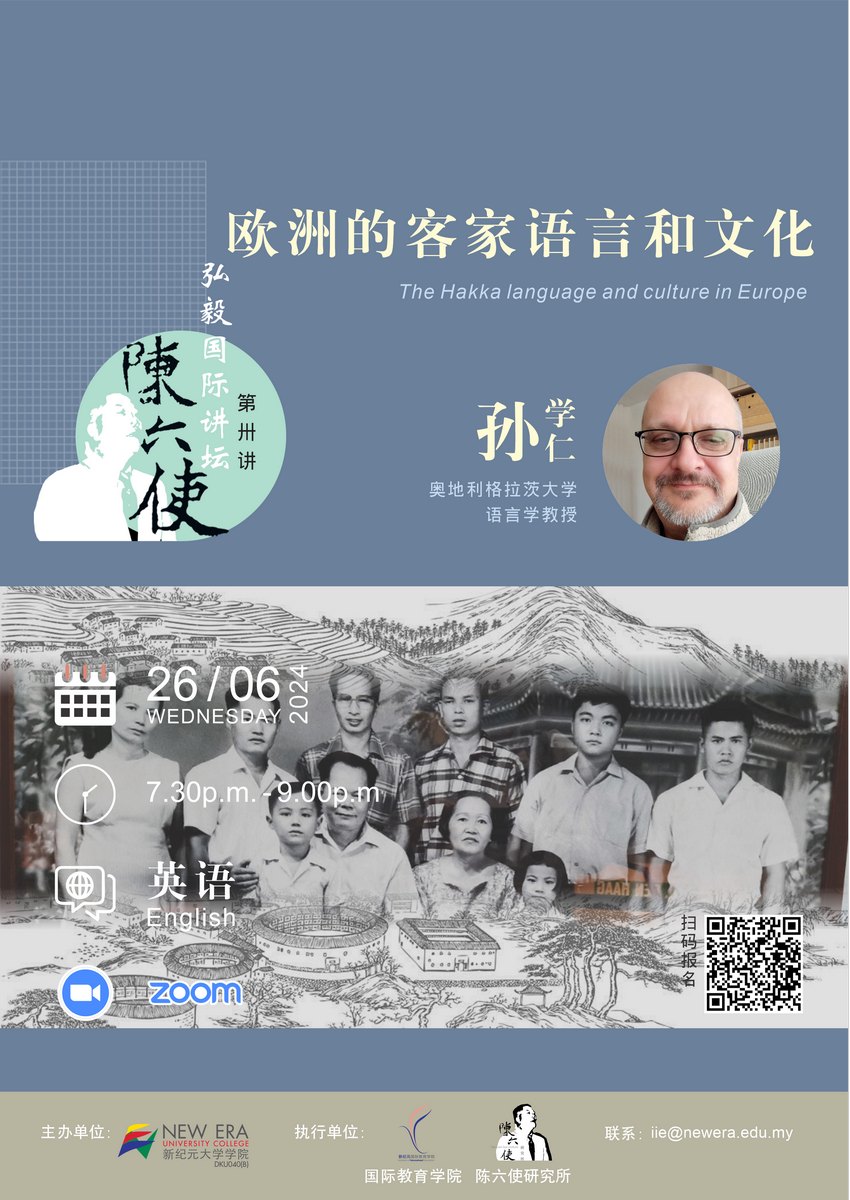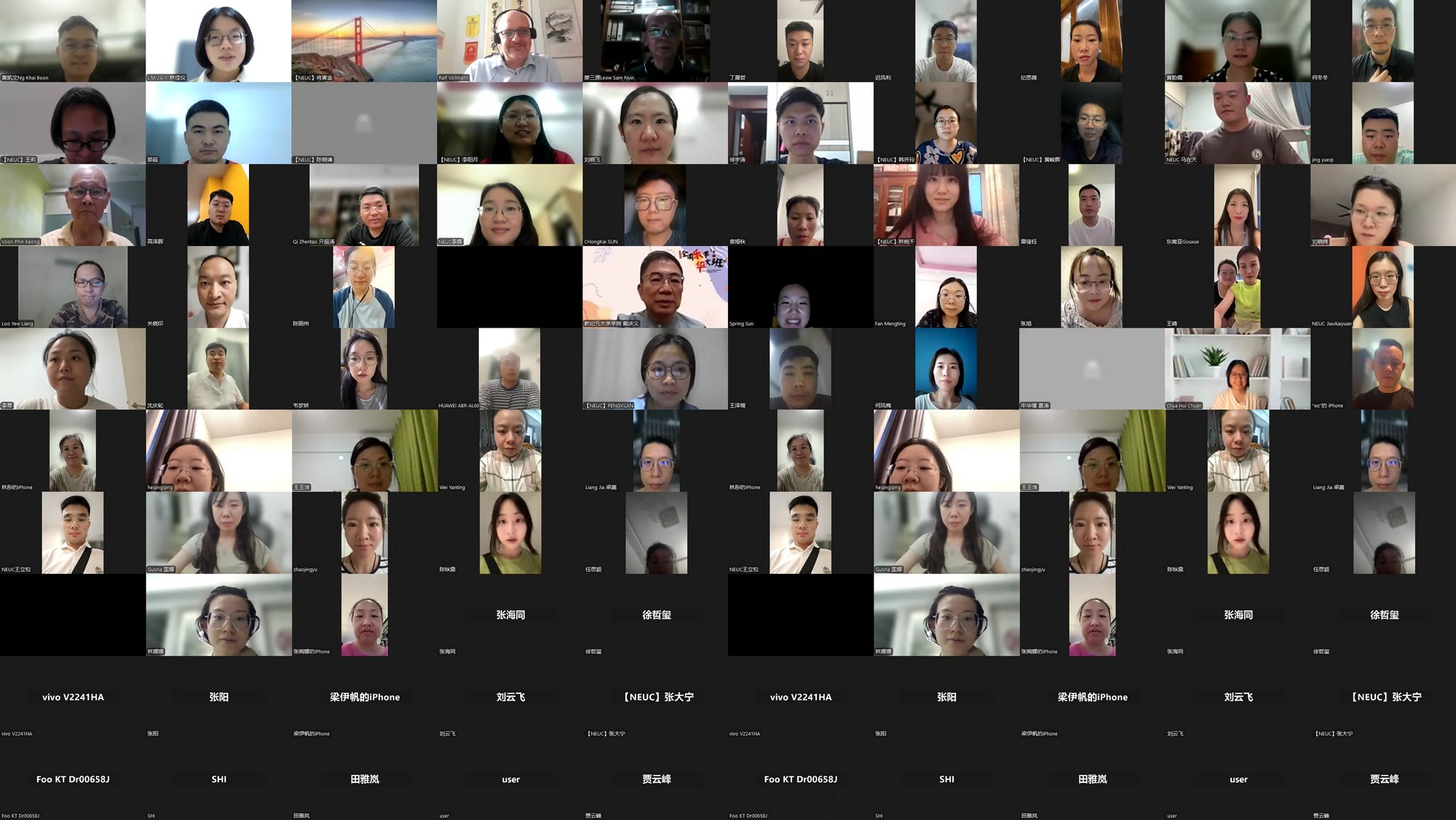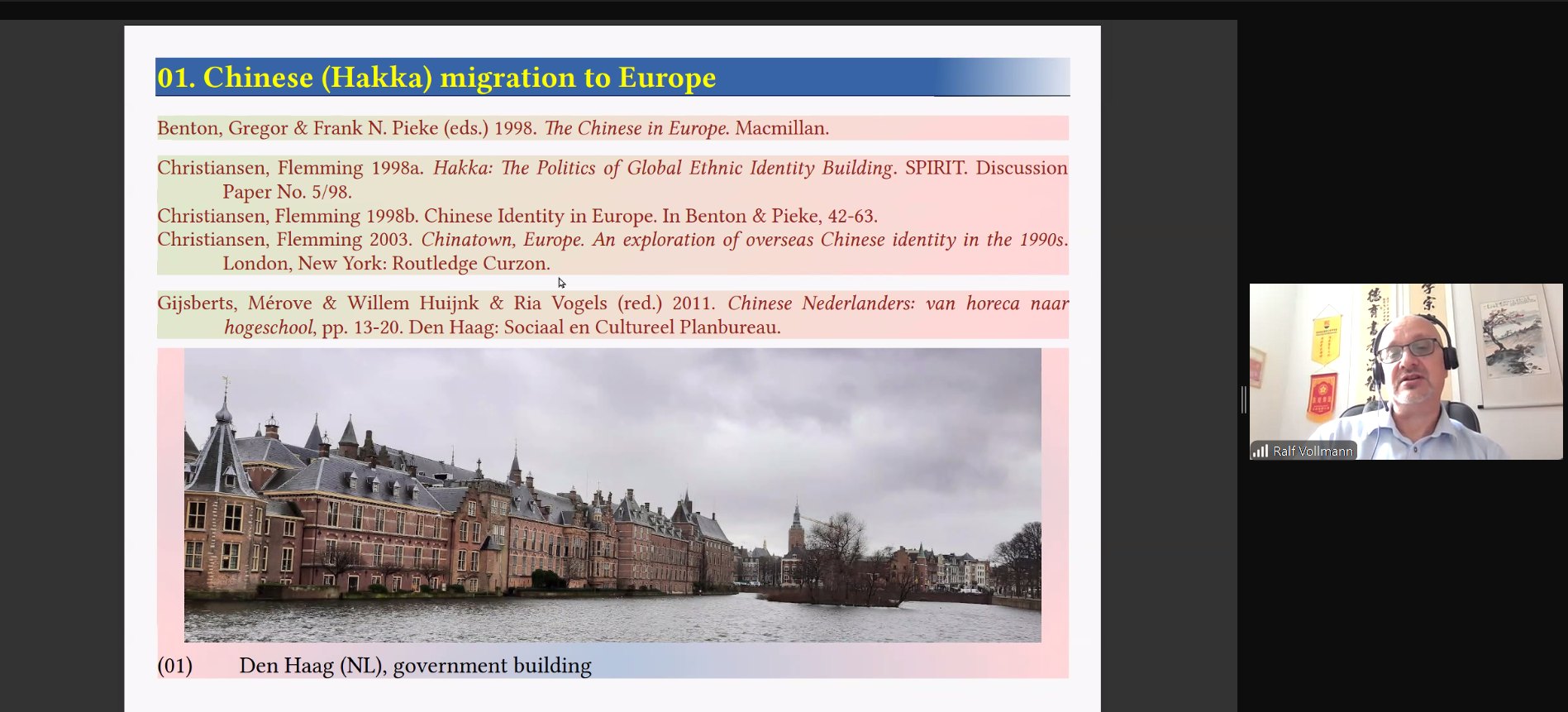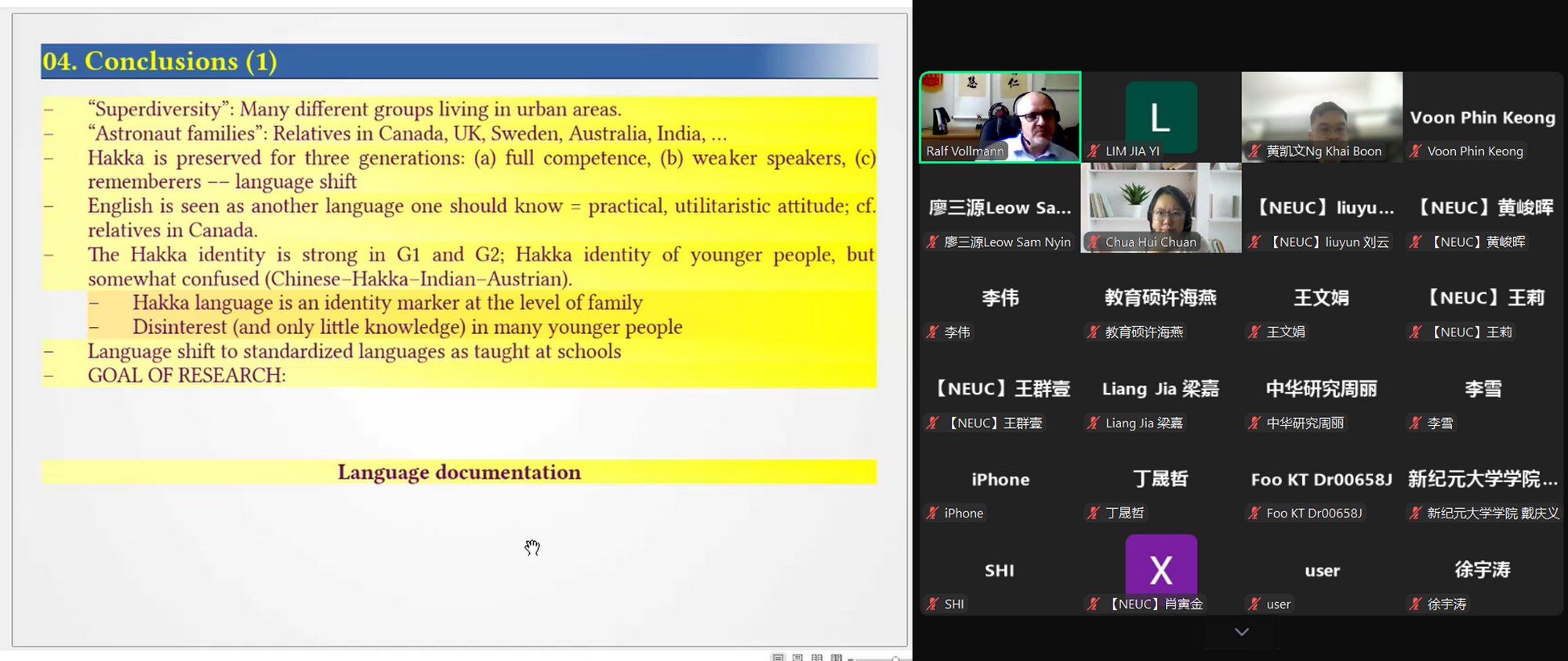【30th Talk】Prof. Dr. Ralf Vollmann: “The Hakka language and culture in Europe”
Upcoming Event

|
Introduction |
The thirtieth talk of the “Tan Lark Sye Lecture Series” will take place soon. This talk features Prof. Ralf Vollmann from The Universität Graz of Austria as main speaker. Prof. Vollmann reveals that the migration of Hakka people from China to Europe has introduced linguistic diversity to local communities. In the Netherlands, first-generation immigrants from Hong Kong, Suriname, and Indonesia brought new languages, but subsequent generations have integrated into Dutch society, losing the Hakka language. In Vienna, older Indian Hakka work in the food industry and speak Hakka, but younger generations pursue diverse careers and prefer mainstream languages like Dutch and German, weakening their Hakka identity. Despite local associations' efforts to preserve Hakka culture, these are mostly symbolic. In this lecture, Prof. Vollmann will discuss the development and current status of Hakka people in Europe. |
|
Speaker |
Prof. Ralf Vollmann Prof. Ralf Vollmann (Sun Xueren) graduated from the University of Vienna in Austria, specializing in linguistics, Tibetan studies, and anthropology. He previously worked at the Austrian Academy of Sciences (Department of Linguistics and Phonetics) and is now a professor of linguistics at the University of Graz. His research areas include sociophonology, child language development, Tibetan linguistics, linguistic typology, and Hakka studies. Currently, his main focus is on multilingual phenomena and related research, particularly studies of Hakka communities in Asia and Europe. |
|
Moderator |
Dr. Lew Siew Boon (Assistant Professor at the International Education College of New Era University College) Dr. Lew received her PhD from the National University of Singapore and is currently an Assistant Professor at the Institute of International Education, New Era University College, as well as the Head of the International Academic Exchange Office. Her main research interests include folklore and folk culture, and the history of Chinese communities in Singapore and Malaysia. She has published several works, including Discovering the Goddess of Mercy in Swee Nyet Temple of Pulai, Kelantan and Hakka in China and Southeast Asia: Cross-Regional Field Work and Essays (co-authored). She has also published more than 20 academic papers. |
|
Information |
Date:26 June 2024 (Wednesday) |
Trailer (Video)
Lecture Postscript
The 30th session of the "Tan Lark Sye Lecture Series," organized by the Institute of International Education, New Era University College (IIE, NEUC) and the Tan Lark Sye Institute, was held on 26 June. The guest speakers for this event was Prof. Dr. Ralf Vollmann from the Department of Linguistics at the University of Vienna, Austria. It was attended by more than 100 people.
Prof. Dr. Ralf Vollmann, graduated from the University of Vienna, specializing in linguistics, Tibetan studies, and anthropology. He previously worked at the Austrian Academy of Sciences (Department of Linguistics and Phonetics) and is now a professor of linguistics at the University of Graz. His research areas include sociophonetics, child language development, Tibetan linguistics, language typology, and Hakka studies. Currently, his focus is on multilingualism and related research, especially in Asian and European overseas Hakka communities.
In this lecture, Prof. Dr. Ralf Vollmann shared his research on the Hakka community, revealing that Hakka migration from China to Europe has led to linguistic diversity in local communities. For example, the Hakka in the Netherlands are first-generation immigrants from Hong Kong, Suriname, and Indonesia, who introduced new languages to Dutch society. However, subsequent generations have stopped using Hakka and integrated into Dutch culture. In Vienna, Indian Hakka migrants stay connected with their overseas relatives, with the older generation working in the food industry and continuing to use Hakka. However, the younger generation, who pursue diverse careers, have gradually weakened their Hakka identity, reducing the importance of the Hakka language. Younger people tend to use mainstream languages like Dutch and German. Although local associations strive to protect and preserve Hakka identity, this effort is largely symbolic. This lecture provided insightful discussions on the development and current situation of the Hakka in Europe. The event was moderated by Mr Ng Khai Boon from NEUC. It received enthusiastic feedback, with the audience actively participating in the Q&A session and eagerly engaging in discussions.




